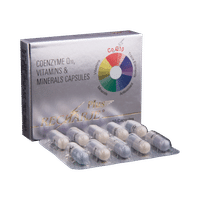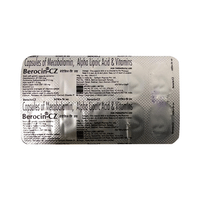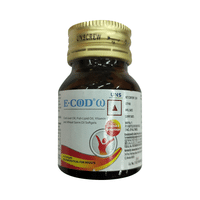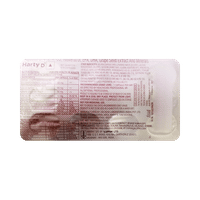Rs.67.10for 1 strip(s) (10 tablets each)
food interaction for Hapymox AM
alcohol interaction for Hapymox AM
pregnancy interaction for Hapymox AM
lactation interaction for Hapymox AM
food
alcohol
pregnancy
lactation
Hapymox AM 0.2mg/5mg Tablet may be taken with or without food.
None
None
CAUTION
It is unsafe to consume alcohol with Hapymox AM 0.2mg/5mg Tablet
UNSAFE
The safety of Hapymox AM 0.2mg/5mg Tablet during pregnancy has not been established. There are no adequate and well-controlled studies in pregnant women, and animal data on reproductive toxicity are insufficient. Your doctor will weigh the benefits and any potential risks before prescribing.
CONSULT YOUR DOCTOR
Information regarding the use of Hapymox AM 0.2mg/5mg Tablet during breastfeeding is not available. Please consult your doctor.
CONSULT YOUR DOCTOR
SALT INFORMATION FOR Hapymox AM
Moxonidine(0.2mg)
Uses
Moxonidine is used in the treatment of Hypertension (high blood pressure).
How it works
Moxonidine is an anti-hypertensive medication. It works by relaxing blood vessels which makes the heart more efficient at pumping blood around the body.
Common side effects
Dryness in mouth, Headache, Dizziness, Insomnia (difficulty in sleeping), Sleepiness, Weakness, Nausea, Itching, Fainting, Sedation, Skin rash, Red spots or bumps, Angioedema (swelling of deeper layers of skin), Slow heart rate, Postural hypotension (low blood pressure), Sleep disturbance
Amlodipine(5mg)
Uses
Amlodipine is used in the treatment of Angina (heart-related chest pain), Hypertension (high blood pressure), Arrhythmia, hypertensive emergency, subarachnoid haemorrhage and anal fissure.
How it works
Amlodipine is a calcium channel blocker. In high blood pressure, it normalizes the blood pressure by relaxing the blood vessels to reduce the pressure on them, thereby improving the blood flow in the body. The enhanced blood flow in the body, further relaxes the heart muscles by reducing the workload on the heart. It also improves the oxygen flow in the body, thereby, preventing any heart-related chest pain.
Common side effects
Headache, Nausea, Abdominal pain, Flushing (sense of warmth in the face, ears, neck and trunk), Dizziness, Palpitations, Edema (swelling), Hypotension (low blood pressure), Chest pain, Fainting, Muscle cramp, Visual disturbance, Shortness of breath, Change in bowel habits, Weakness, Insomnia (difficulty in sleeping), Mood changes, Depression, Tremors, Taste change, Hypoesthesia (decreased sensitivity to stimuli), Paresthesia (tingling or pricking sensation), Arrhythmia (irregular heartbeats), Vomiting, Dryness in mouth, Rash, Muscle pain, Back pain, Frequent urge to urinate, Impotence, Breast enlargement in male, Decreased white blood cell count (lymphocytes), Low blood platelets, Allergic reaction, Increased glucose level in blood, Confusion, Hypertonia (increased muscle tone), Pancreatic inflammation, Gingival hyperplasia, Hepatitis (viral infection of liver), Angioedema (swelling of deeper layers of skin), Stevens-Johnson syndrome
SUBSTITUTES FOR Hapymox AM
1 Substitutes
1 Substitutes
Sorted By
 Rs. 62.91save 8% more per Tablet
Rs. 62.91save 8% more per Tablet
Expert advice FOR Hapymox AM
- Moxonidine lowers your blood pressure and makes it easier for your heart to pump blood around your body.
- Lowering high blood pressure helps prevent stroke and heart attack.
- Eat healthy (low-sodium diet), exercise, quit smoking, limit alcohol intake, and reduce stress along with taking Moxonidine.
- Dry mouth may occur as a side effect. Frequent mouth rinses, good oral hygiene, increased water intake and sugarless candy may help.
- Moxonidine may cause dizziness or sleepiness. Do not drive or do anything requiring concentration until you know how it affects you.
- It may cause you to feel lightheaded especially when you stand up (orthostatic hypotension). Rise slowly if you have been sitting or lying down.
- Moxonidine lowers your blood pressure and makes it easier for your heart to pump blood around your body.
- Lowering high blood pressure helps prevent stroke and heart attack.
- Eat healthy (low-sodium diet), exercise, quit smoking, limit alcohol intake, and reduce stress along with taking Moxonidine.
- Moxonidine may cause dizziness or sleepiness. Do not drive or do anything requiring concentration until you know how it affects you.
- It may cause you to feel lightheaded especially when you stand up (orthostatic hypotension). Rise slowly if you have been sitting or lying down.
- Dry mouth may occur as a side effect. Frequent mouth rinses, good oral hygiene, increased water intake and sugarless candy may help.
Frequently asked questions FOR Hapymox AM
Moxonidine
Q. How should I take Moxonidine?
You should take Moxonidine exactly as prescribed by your doctor. Take it as a whole (without crushing or chewing it) with sufficient amount of water. It can be taken before, during or after meals, as food does not affect the working of Moxonidine.
Q. When can I take Moxonidine?
In case you are prescribed a single lowest dose of Moxonidine, you can take it in the morning. On the other hand, if divided doses are to be taken, one dose can be taken in the morning and the other in the evening.
Q. Who should not take Moxonidine?
You should not take Moxonidine if you are allergic to it or have heart function insufficiency. Prefer not to use the medicine if you have a slow heart rate (below 50 beats/minute at rest) or suffer from an abnormal heart rhythm or a change in the rate of the heartbeat (called sick-sinus syndrome or second or third degree AV-block).
Amlodipine
Q. How long does it take for Amlodipine to work?
Amlodipine starts working on the day it is taken. However, it may take weeks to see the full effect. You should continue taking the medicine even if you feel better or if you do not notice any considerable difference. Consult your doctor if you have any concerns or you feel worse after taking the medicine.
Q. Does Amlodipine cause itching?
Amlodipine may cause itching in some patients, though it is an uncommon side effect. However, if you experience severe itching contact your doctor.
Q. Is Amlodipine bad for the kidneys?
No, there is no evidence that Amlodipine causes deterioration of kidney problems. Amlodipine can be used in normal doses in patients with kidney problems. In fact, its blood pressure-lowering effect, it helps to prevent injury to the kidneys due to hypertension.






















